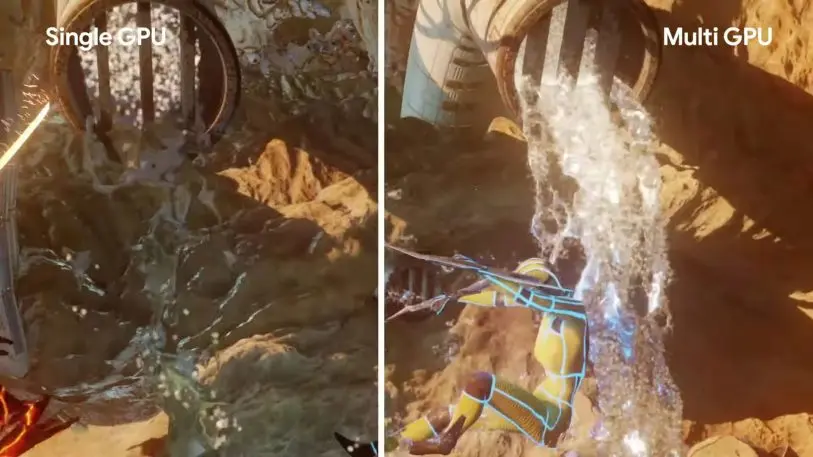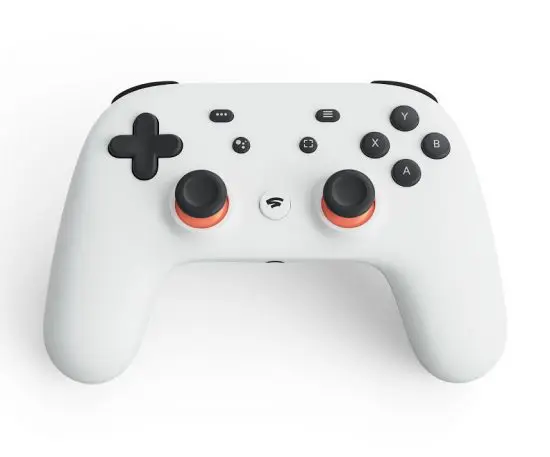On Tuesday, after months of buildup, Google announced an ambitious plan to take on Microsoft, Sony, and Nintendo with its own gaming platform.
It’s called Stadia, and when it launches later this year, it’ll let people play console-quality games through a web browser, smartphone, tablet, or Chromecast. Instead of requiring expensive console or PC hardware, Stadia will stream the games from Google’s servers, which will provide all the necessary computing power.
Google is not alone in pursuing game streaming. Microsoft is working on a streaming service called Project xCloud, while Sony and Nvidia have their own services in PlayStation Now and GeForce Now. Amazon is reportedly building a game streaming service as well, and they’re all being chased by a slew of startups such as Shadow and Parsec.
So far, though, Google is the only major player that seems to understand what a game streaming service needs to be successful. Either that, or it’s the only one that’s not afraid to raze the existing PC and console game business. Making a game like Assassin’s Creed Odyssey run on a phone or web browser is not enough. To win in game streaming, a company must be willing to build entirely new experiences that aren’t possible on a home console or PC. Only Google has committed to doing that.
Chasing the “Netflix of gaming”
Last August, I wrote a story arguing that Microsoft was well suited to become the “Netflix of gaming.” Microsoft already has a sprawling network of data centers and a cloud computing architecture in Azure, plus its business is increasingly geared toward selling subscriptions. Most importantly, Microsoft owns a growing stable of first-party game studios, which the company could use to build cloud-first gaming experiences.

“We’re developing Project xCloud not as a replacement for game consoles, but as a way to provide the same choice and versatility that lovers of music and video enjoy today,” Kareem Choudhry, Microsoft’s corporate vice president of gaming cloud, wrote in a blog post last week. “We’re adding more ways to play Xbox games.”
That statement stands in stark contrast to what Google announced on Tuesday. Google’s message around Stadia isn’t just about playing on any device, but about shedding the restrictions that local console and PC hardware impose on the games themselves. Some examples of advantages that come with game streaming:
- Multiplayer games could run on Google’s internal backbone and stream to each player, rather than running on lots of individual systems that in turn synchronize over the internet. By coordinating the entire multiplayer session on the server side, Google says it could enable something like a 1,000-player version of Fortnite with fully destructible environments.
- Conversely, the lost art of split-screen multiplayer games could be restored because local hardware will no longer be a bottleneck.
- Game developers could tap into multiple graphics cards on a server for a level of realism that isn’t possible on today’s consoles or PCs.
- A feature called “State Share” will let players share links to any part of a game, so that other players can dive into that exact moment. The studio Q-Games is building an entirely new game around this concept.
By comparison, Microsoft’s demo of Project xCloud last week merely showed Forza Horizon 4–an existing Xbox One game–running on a smartphone with a game controller attached. I’m skeptical that this alone will move the needle for game streaming, because it won’t provide a markedly better experience than playing games on a console at home. Once you factor in the ongoing costs of a cloud gaming subscription, plus the unreliability of internet connections outside the house, it’ll probably be a worse experience overall.
For game streaming to work, it needs to offer more. Google, at least, understands this.
Early days
That’s not to say Google’s success in cloud gaming is a sure bet, as a lot of the Stadia features that Google talked about are either theoretical or in early development. While Google is opening its own studio to lead the way on building Stadia games, the company didn’t announce any specific games to take advantage of its Stadia’s graphical powers or multiplayer capabilities.
Meanwhile, game streaming as a whole rests on shaky ground, especially in the United States, where consumers have few choices for internet service and face data caps from major providers like Comcast and Cox. An early hands-on report by Eurogamer‘s Richard Leadbetter found that Stadia did a good job of minimizing lag between controller input and the on-screen response, but that was under ideal conditions. Google will still have to prove the viability of Stadia in the real world.
On top of all that, Google has a long history of announcing ambitious new projects, only to lose interest when the going gets tough. The company has largely abandoned its plans to be an internet provider–ironic, as Google Fiber would have been a boon for a service like Stadia–and has let platforms like Android Wear and Android TV languish. Its attempts at social networking have gone nowhere (goodbye, Google+), and it has rebooted its Internet of Things plans several times. Building new experiences for Stadia–and convincing other game developers to do the same–will require considerable investment over a long period of time, and it’s fair to wonder if Google will have the wherewithal to stick it out.

Besides, gaming is one of the last spheres of consumer electronics that isn’t dominated by tech giants. While I like where Google is going with Stadia, I’m not rooting for it to destroy companies like Sony and Nintendo. (Microsoft, win or lose in gaming, will be fine.)
My hope, then, is that the companies paying lip service to game streaming now will take stock of what Google is doing with Stadia, and realize they’ll have to do more than put existing games on a phone with a Bluetooth controller attached. Instead, they should use streaming to rethink what games can accomplish. Otherwise, they risk being left behind by an outsider with no reason to fear change.
Recognize your brand's excellence by applying to this year's Brands That Matters Awards before the early-rate deadline, May 3.